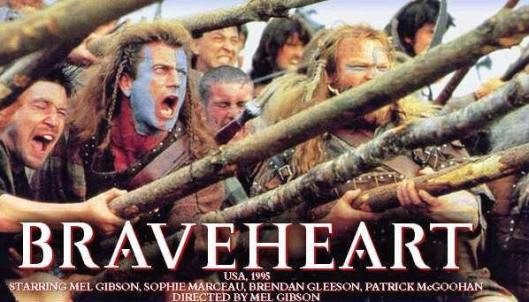
With the end of 2021 coming, I have been busy working with companies for their year-end planning. Working with them closely and observing how they craft their strategies to move forward and put execution plans in place, I admire their grit to survive and excel in their industries amidst the pandemic. I applaud their efforts and I am committed to help them succeed. Yet as I observe more and more companies, I would also like to highlight the common problems faced by companies in crafting their strategies, so that we can avoid them altogether.
#1. Bad Habits

Photo by Djim Loic
(source: Photo by Djim Loic on Unsplash)
Some bad habits masquerade as good practices, and this inhabits strategic thinking. Strategic thinking is first and foremost about how to differentiate your business from others. It is about identifying your core customer and then asking what can you do to meet the needs and the fears of this core customer, and then aligning every resource you have, and developing new ones, to meet these needs better than your competitors are able to. But inevitably, this runs counter to a lot of old practices like trying to satisfy your customer’s every wants. Like chasing fads and not focusing on your core strengths.
What got you here, won’t get you where you want to go – because as businesses grow, it becomes complex. Competitors notice you. Others see you succeed and think they can join the bandwagon. Organisational complexities increase. You need systems and processes, a new way of thinking, a fresh understanding of who your client really is, and build new processes and competencies to take your company to the next level.
Yet, while leaders know all these, they invariably fall to practices they are used to. Leaders do not act on strategy but do what they are used to do. For example, even though a company I work with had identified three core competencies to develop for 2022, it invariably forgot about its commitment to develop these competencies and focused on doing what it used to do – try to be good in everything! However, one may be forgiven if the strategy is made into something too complex to follow, which makes it therefore easier to fall back to old habits of running the business.
What you can do to avoid falling into the trap of old habits:
A. Find a simpler way to formulate your strategic plan.
I am unreservedly for the One-page strategic plan developed by Gazelles International. The plan is simple enough to follow once it has been crafted together with a certified coach. Business operations are already complex, we don’t want to add to it with a plan that nobody understands. Some of my clients, before they implemented the Rockefeller Habits and the One-Page Plan could spend 10-12 hours on management meetings, which are inevitably ineffective and confusing. Simplify the whole process!
B. Revisit your plan regularly
I find myself reminding the business leaders who I work with what was the strategy they had decided on. i also asked them to commit to one particular aspect of strategy they want to see come through in the following year and to constantly work on that one aspect. if not, it is easy to forget, or to feel overwhelmed by their strategic plan and revert to old habits. If business leaders can focus on one strategy every year and do it well, the impact on the business would be great. Having a coach in this aspect helps, because having a third party to remind you of what needs to be done, and not what you feel like doing will keep you away from bad habits.
“What got you here, won’t get you where you want to go -Because as businesses grow, it becomes more complex”
#2. Wrong Understanding of Strategy

This is a common problem for most business leaders. They fail to understand that strategy is about trade-offs. They also don’t understand that strategy is about alignment. And most importantly, they think that strategy is a magic bullet. Strategy requires discipline, discipline, and more discipline. I recall a scene from the movie Braveheart, where the Scots had laid an ambush for the English cavalry. They had long pikes that could stop the English charge, but for the plan to work, they had to hold off revealing their weapons until the last minute. A break in discipline would have resulted in either the collapse of their formation, which would lead to being slaughtered by the English cavalry, or the enemy not taking the bait and falling into the trap. The Scots held on to the last minute against the pressure to do what was natural – to run or to fight in ways they were familiar with. But they stuck on to their strategy – and won.
Key points:
A. Year-End Planning strategies cannot be formulated without an understanding of core customers, and what your competitors can or cannot do, what they hate to do and love to do.
B. You can’t have it all, so you need to focus. Focus requires discipline.
C. Strategy is only as good as its execution. And execution is again about discipline.
D. Smart strategy is about trade-offs because we don’t have an infinite amount of resources and time. Trade-offs require discipline in thought and action. If not, it is easy to try and have it all, which is the fastest way to lose the game.
#3. Wrong Practices
Every company has a system of meetings – the only problem is that meetings tend to take on a life of its own and meander like a river to nowhere. As a result, meetings do not result in clarity, focus, and accountability. Every meeting should have these 3 words in mind:
A. Clarity – does the meeting help to clarify what the targets are, and what everyone must do?
B. Focus – does the meeting align everyone to do the right thing for that week/month/quarter, and lead to action being taken?
C. Accountability – does the meeting help everyone be accountable for actions and results?
To develop a new understanding of meetings that work, master the Rockefeller Habits. The habits include a system of meetings called the rhythm, and it helps keep everyone on track. the rhythm helps maintain execution discipline. But what is most important is the agenda of the rhythm: it does not allow the meeting to go off-course but focuses on Clarity, Focus, and Accountability.
“Strategy is about trade-offs”
Too often, I see companies embark on the journey of developing strategy only to give up, writing it off as a waste of time because they go back to old habits. They claim that strategy is too abstract to work, or it is too academic, etc, and the result is they get jaded by it. The problem does not lie in strategy, but it lies in the way companies execute it. It is important to keep in mind that strategy is only as good as its execution and pay attention to its execution, that strategy will work. When it works, it will make all the hard work worth it!
Here is our playlist of 5 Videos to help you with your year-end planning;
&
If you require an annual planning agenda and hour by hour schedule, you may click on this post
Have a fruitful planning for 2022.
Keep Scaling Forward!
The Growth Catalyst Team


